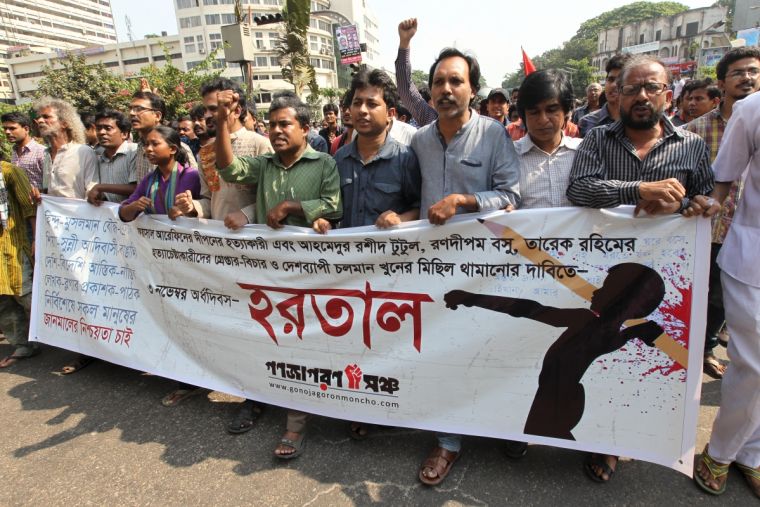Over 14,000 suspected drug criminals, militants arrested in Bangladesh to stop machete attacks on Christians, atheists

More than 14,000 suspected drug traders and militants from Bangladesh were arrested by police officials last week in an attempt to stop the gruesome machete attacks being launched against Christians and atheists in the predominantly Muslim nation.
According to a report by The Los Angeles Times, police official Kamrul Ahsan estimated that some 14,552 individuals have been taken into custody by law enforcement authorities during the government crackdown last week.
Most of the arrested persons, Ahsan said, have suspected links to the drug trade.
The police official added that 166 suspected militants were among those arrested. Most of them are believed to be members of two homegrown extremist groups Jamaatul Mujahidin Bangladesh and Ansarullah Bangla Team.
The police crackdown on suspected criminals was prompted by the deaths of at least 49 people - mostly members of religious minorities including Christians, Hindus and atheists - over the last 17 months in the hands of machete-wielding assailants.
Bangladesh Prime Minister Sheikh Hasina earlier assured members of her ruling Awami League party that police officials will catch "each and every killer" involved in these horrible crimes.
"It may take time, but God willing, we will be able to bring them under control. Where will the criminals hide? Each and every killer will be brought to book," Hasina said, as quoted by Sky News.
Despite the police crackdown, however, criminals seem unfazed. Attackers with machetes were reportedly arrested by police last week Thursday for allegedly wounding a Hindu college teacher from southern Bangladesh.
Still, religious minority groups are thankful for the government's efforts to stop the killings.
Neem Chandra Bhowmik,a University of Dhaka professor and vice president of the Hindu Buddhist Christian Unity Council, said that the police crackdown is giving members of religious minority groups some peace of mind.
"If they don't detain them, how could they find out the mastermind of these murders?" Bhowmik told The LA Times.











